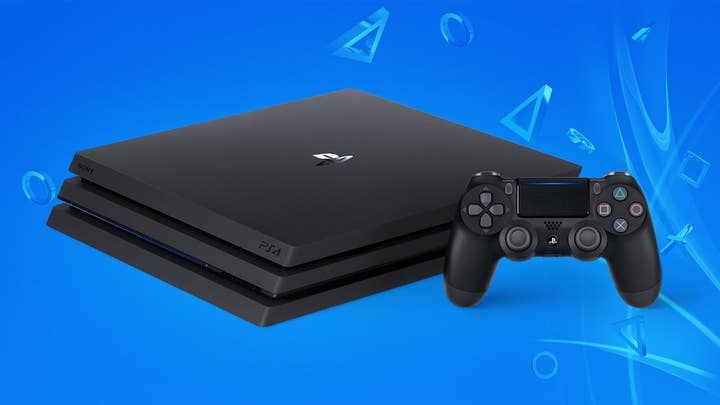PS4 slows as the transition nears | Opinion
Sony's next year will be vital; as PS4 sales decline faster than expected, can the company balance support for its older console with building excitement for the new?
PlayStation 4 is slowing down a little -- and where only a short while ago that would have been a the-sky-is-falling kind of pronouncement, right now it's probably fine.
The console, coming up shortly on its sixth birthday, has outperformed all expectations and is now the second-best selling home console in history -- comfortably ahead of the PS1 and the Wii, though still tens of millions of units behind the staggering performance of the PS2. A bit of softness in its sales figures at this point, with the full-year sales numbers being revised down from 15 million to 13.5 million units, suggests that the PS2's record might remain unchallenged, but it's not actually damaging in terms of the PlayStation business overall, either for Sony or for its third-party partners.
If the PS4's sales are slowing at a faster than expected pace -- and to be clear, that minor full-year shortfall doesn't really show the scale of the downturn in the graph, with Q2 shipments of PS4 hardware actually down some 28% year-on-year -- the real question is not what it means for PS4 itself, whose place in the market is already well-secured, but what it means for the planned transition to PS5 next year.
"The figures are far from a crisis but projecting this decline forward and factoring in the uptick in PS5 news, it's easy to see sales flatlining earlier than Sony allowed for"
Thus far, the signalling from Sony, limited as it has been, has suggested that the company is keen to strike a balance between the old and new platforms. Broadly similar architecture and shared online services mean that the PS4 to PS5 transition should, in theory, be very smooth compared to Sony's previous generation shifts -- and opens up the potential for an increasingly discounted PS4 to stay on the market as the company's entry-level console for several years after PS5 arrives.
It's unlikely that Sony plans to be particularly radical in their positioning of this strategy; more than any other platform holder, Sony has done very well, thank you very much, from the old-fashioned console business model and has little incentive to try to upset that process too much. The overlap between PS4 and PS5, however, seems set to be a bit more comprehensive than in previous generations, with the older console remaining a viable option in its own right -- not just "pick this up for your kids to play cheap older games," great though that business opportunity can be -- while the PS5 sells itself initially to a higher-end audience on the basis of new functionality and prowess. On paper, this kind of transition would result in much smoother finances for Sony throughout the generation shift, while also hopefully opening up new demographics for the PlayStation platform overall.

If PS4 continues to decelerate at a pace Sony did not anticipate, however, it throws up a question mark over how this process is balanced. The current sales figures are far from being a crisis -- PS4 is still selling gangbusters for an almost six-year-old console that still commands a premium price point, and the PS Plus numbers clearly demonstrate that the platform more broadly is in rude health -- but projecting this decline forward and factoring in the inevitable impact of the uptick in news and announcements about PS5 as next year wears on, it's easy to see the console's sales flatlining quite a bit earlier than Sony's strategy has allowed for.
Why is that happening? There are a few possible reasons, not all of them negative; it might, for example, reflect a strong pent-up interest in PS5 from consumers, with purchases (especially upgrades to PS4 Pro) being pushed off in anticipation of next year's launch. It's likely, however, that the single largest factor is the success of Nintendo's Switch, whose stellar performance has undoubtedly let some of the air out of Sony's balloon.
"For PS5 to launch on a high, PS4 needs to remain beloved through its twilight - a balancing act few platform holders have managed to pull off"
While it's impossible to quantify how many of the 41 million hardware sales Switch has racked up were made at Sony's expense, it's inevitable that some of them were; different as these platforms may be, it's just not reasonable to expect that a rival like Switch can make this much market headway without it impacting on PS4's golden years. That's not a factor that's likely to go away any time soon and indeed, with Sony pushing back key software titles for PS4 and Nintendo's Pokémon Sword & Shield juggernaut bearing down on the holiday market, it's not impossible that we might see another downward revision on those PS4 numbers after a tough winter quarter.
How Sony responds to this challenge is crucial, because it will require some strategic rebalancing. Keeping PS4 vital and well-sustained through the early years of PS5 becomes a more daunting and less rewarding task if Nintendo is busily drinking everyone's milkshakes in that end of the market. The temptation must be to look at the tip of the sales graph beginning to plummet and decide that it's time to double-down on next-gen development and promotion -- shelve some of the notions of PS4 being the entry-level console and focus on making PS5 into a must-have console instead.
Perhaps some of that thinking is already filtering through; while there's no clear sign that the delays to The Last Of Us 2 (and potentially to Ghost of Tsushima) are anything to do with next-gen development, few will see coincidence in these delays coming as work on PS5 ramps up and nobody will be surprised if PS5 versions of those games are announced as launch window titles.
That in itself doesn't represent a scaling back of commitment to PS4's future -- if anything, bridging major titles between the two consoles would be part of that plan. But the delays are interesting, especially if they speak to priorities. Consumers are very sensitive to that kind of thinking; the notion that a transition is leading to the platform they own being deprioritised or ignored can have a serious impact on goodwill and cause significant harm to the inertia a console platform has built up.
Handling the communication and marketing of the inevitable shift of Sony's internal development resources (which are significant, with the Insomniac acquisition making it Sony's 14th internal studio, a wealth of talent and expertise that is perhaps the company's single biggest competitive advantage right now) is a delicate and vital task as this transition starts to take shape.
The PS4's missed targets, then, aren't something concerning in themselves -- there wasn't anything in Sony's results that should discombobulate either industry partners or investors, and even the ever-skittish markets responded to them fairly positively. How Sony responds to this slightly changing landscape -- and especially to the market strength of Switch -- as it prepares for its next-gen launch, however, is something everyone should be watching closely.
For PS5 to launch on a high, PS4 needs to remain beloved through its twilight; that's a balancing act few platform holders have ever managed to pull off entirely successfully.

